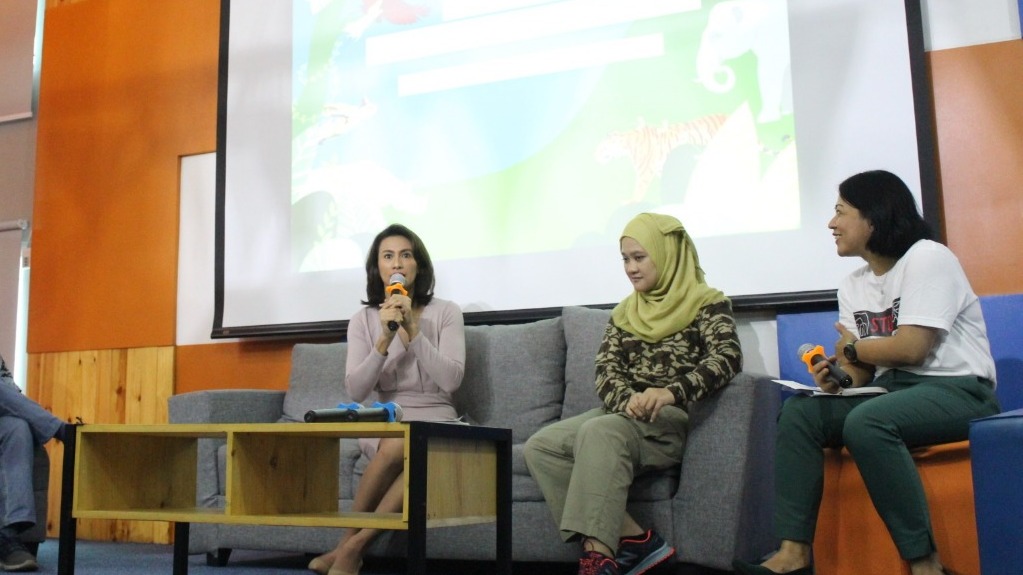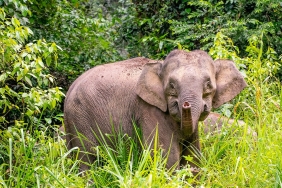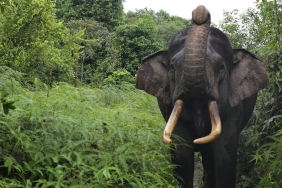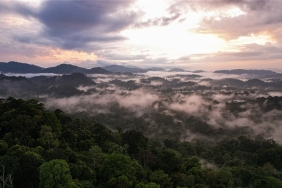IT'S TIME TO STOP WILDLIFE CRIME TOGETHER, STARTING NOW!
Indonesia is home to many species of animals, from the land to the seabed. Unfortunately, many of these species have become targets for poaching and illegal trade by the mafia. The illegal trade of protected wildlife is directly proportional to the extinction rate of many animals in Indonesia, and of course this threatens the sustainability of natural life. Some of the most threatened species include tigers, elephants, rhinos, manta rays, sharks and other animals that play a role in the ecosystem in Indonesia. The crime of illegal wildlife trade has even been categorized as transnational organized crime, as it involves mafia networks and the value of losses resulting from this illicit trade rivals that of narcotics trafficking, human trafficking and counterfeit goods.
In response, WWF-Indonesia organized a "Wildlife Crime Talk" and brought together many experts who are competent in the issue of illegal wildlife trade as speakers. Located at KASKUS Playground Jakarta, this event was attended by many participants from various ages and circles who care about this one environmental problem.
Wildlife Crime Talk with the theme "Indonesia Says NO to Illegal Wildlife Trade" presented speakers who are involved and concerned in this matter. The speakers were Novi Hardianto-Wildlife Crime Specialist from WWF-Indonesia, Dwi Adhiasto-Wildlife Crime Expert from WCS Indonesia, Davina Veronica-Founder of Garda Satwa Indonesia, Sugeng Irianto-BARESKRIM POLRI and representatives from KASKUS Green Lifestyle Community.
Novi Hardianto said in his presentation that the poaching and trade of protected wildlife is motivated by the increasingly diverse lifestyles of humans and the increasing needs of life. To fulfill these desires and needs, the perpetrators see protected wildlife as a business opportunity, such as utilizing the wildlife as ingredients for medicines, accessories, pets, and circus performers.
Poaching and trafficking of protected wildlife is motivated by human lifestyles that are increasingly diverse and make life more demanding.
Not only animals on land, but also protected animals in the sea are targeted for poaching. Dwi Adhiasto explained that since 2014, Wildlife Conservation Society has supported 88 operations covering illegal trade, hunting, keeping, online trade, smuggling and illegal fishing involving 106 perpetrators. Dwi said that many protected marine species are hunted for their body parts because they are believed to be medicinal or for consumption because they are considered to be prestigious food ingredients. Examples of marine species targeted by poachers include manta rays for their gills and sharks for their fins. Not only for consumption, marine species such as Whale Sharks and Dolphins are also widely hunted to be used as demonstration animals.
In response to the phenomenon of poaching and illegal trade of protected wildlife in Indonesia, BARESKRIM POLRI from 2014-2018 has prosecuted 240 cases with 230 suspects. The evidence collected consists of live animals, preserved animals, body parts, and products such as ivory cigarette pipes, tiger fang pendants and turtle carapace bracelets. In the Wildlife Crime Talk, AKBP Sugeng Irianto explained that now the Indonesian people can participate in monitoring and reporting activities related to wildlife capture and trade cases with an application called "e-Reporting of Protected Animals" which can be downloaded on Android phones. In the application, people can report in detail the condition of the animal up to its location to be followed up by BARESKRIM.
It is time for us to support the government's efforts to stop poaching and illegal trade of protected wildlife. Let's protect animals together and maintain the balance of the ecosystem for a sustainable future.





